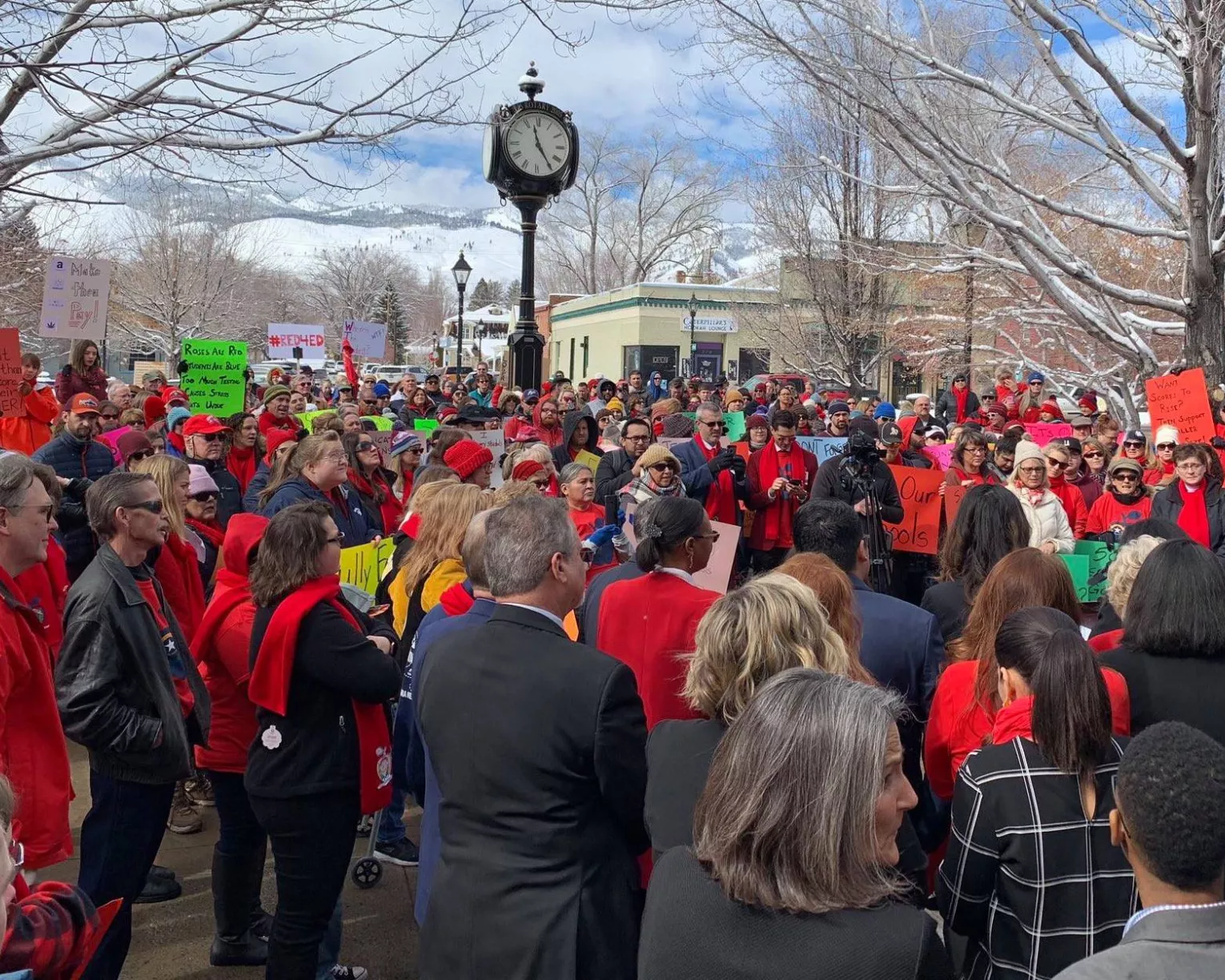NSEA conducted a survey of 3586 teachers across the state regarding teacher evaluations between March 18th and March 26th. Over 90% of teachers surveyed thought that the current teacher evaluation structure is not a fair and valid measure of a teacher’s performance. More than 2/3 of respondents thought 0 or 10% is the most appropriate percentage of SLO/SLG’s to use in a teacher’s evaluation, with only 27% at 20% and 3% at 40%.
Educators want accountability – when it is based upon fair, timely, rigorous and valid measures. The current evaluation structure utilizing student data for 40% of a teacher’s evaluation, through student learning goals (SLG’s) or student learning objectives (SLO’s), is not a fair or valid measure of the complex demands upon the teaching profession.
Teachers are accountable for their students’ safety, learning and providing a path towards success. Meeting the demands of the teaching profession requires tremendous will, ability, creativity, organization and preparation. It also requires continuous learning, feedback, and support.
To ensure high-quality teaching, it is necessary to have meaningful and fair teacher evaluations that provide a format for constructive assistance. Since 2011 Nevada has worked to build a rigorous framework to measure teachers’ instructional practice and leadership as well as professional responsibilities.
Unfortunately, Nevada’s schools and teachers have suffered through competing political emphasis on the use of student data, first with the use of test scores as part of an educators’ evaluations and now measuring growth with SLO/SLG’s.
This decision has relegated proven educational practice including student engagement, lesson planning including differential instruction, scaffolding, professional development opportunities, and classroom management to only 60% of a teacher’s evaluation.
According to the Department of Education, SLO/SLG’s are intended to encourage a collaborative process, providing opportunities for teachers to work with other teachers in professional learning communities and with their evaluators to set meaningful academic goals for their students. Ironically, the paperwork and time involved with implementing the SLO/SLG’s actually takes away from meaningful conversation and work with professional learning communities.
Teachers are reporting spending inordinate time on paperwork and creating their SLO/SLG’s they don’t find meaningful for improving the quality of their instruction.
SLO/SLG’s are intended to be long-term, measurable, academic goals set for students to accomplish by the end of a course. In reality, evaluation cycles are complete before the end of the school year. Teachers need several weeks to get to know students’ strengths and opportunities for improvement, to explore data at the beginning of the year, so it is not logistically possible for SLO/SLG’s to measure student growth over an entire school year.
SLO/SLG’s are intended to identify the most important learning content for students for the year. Ideally, they help teachers utilize the practice of student goal setting outside of the SLO/SLG process. With the stakes so high on evaluations, many teachers are more focused on technical compliance and default to SLO/SLG’s they believe to be more achievable for their students. Very few make the connection to transfer the practices into their everyday planning. With the higher stakes, teachers are less inclined to take risks with their instruction on the SLG. One teacher in Clark County called SLG’s “a dog and pony show.” She said, “Most teachers are just going to choose the goals that they know they student can achieve.”
Everyone is familiar with the teacher shortage and teacher pipeline issue in Nevada. SLO/SLG’s account for a large percentage of an evaluation that highly effective lead teachers are shying away from pre-service student interns, to avoid relinquishing their classes to a novice. Meanwhile new educators deciding where to begin their career may decide not to come teach in Nevada where such a large percentage of their evaluation is open to many varieties.
There continues to be a concern about fairness in implementing SLO/SLG’s with issues of consistency between grade levels, from school to school, and district to district.
Some administrators dictate SLO/SLG’s a teacher will use with all teachers at the school having the same SLG due to low standardized test scores in reading or math from the previous year, ignoring other possible areas of instructional improvement in social studies, science, and writing. Others allow SLO/SLG’s to be the teacher’s choice completely. While others utilize professional learning communities to make the decision in a collaborative fashion based upon where the students’ needs to grow. The amount of planning time for implementation and analysis of the outcomes from the plans is yet another issue impacting the consistent discussions for SLO/SLGs. Teachers at higher performing schools can face issues showing growth with students who start out at high levels, while teachers at schools with lower socioeconomic status can face transiency rates that makes growth comparisons very difficult.
Finally, and most importantly, there is little to no evidence that use of SLO/SLG’s in teacher evaluations leads to improved instruction or even better overall student outcomes. There is even less evidence to support the use of any specific percentage in a teacher evaluation – whether that be 40%, 20%, or any other arbitrary percentage.
For all the reasons stated, NSEA opposes the use of SLO/SLG’s in teacher evaluations but supports the compromise of 10% included in AB460. We believe that teacher evaluations should be based on what teachers do in the classroom and at their school site focused on instructional practice, leadership, and professional responsibilities.
Learn More
What's On Your Mind?



